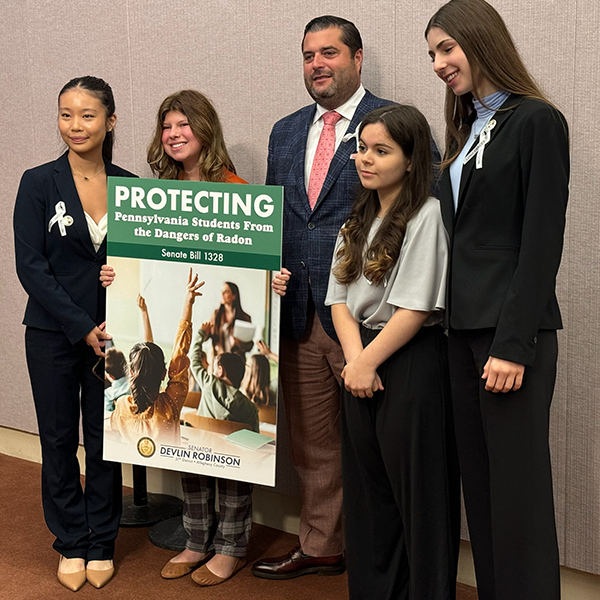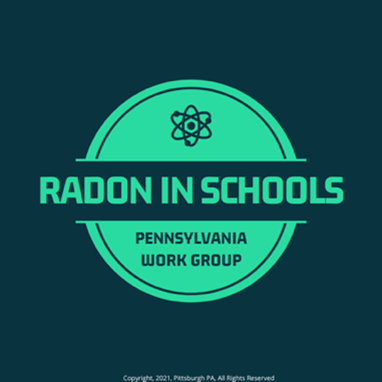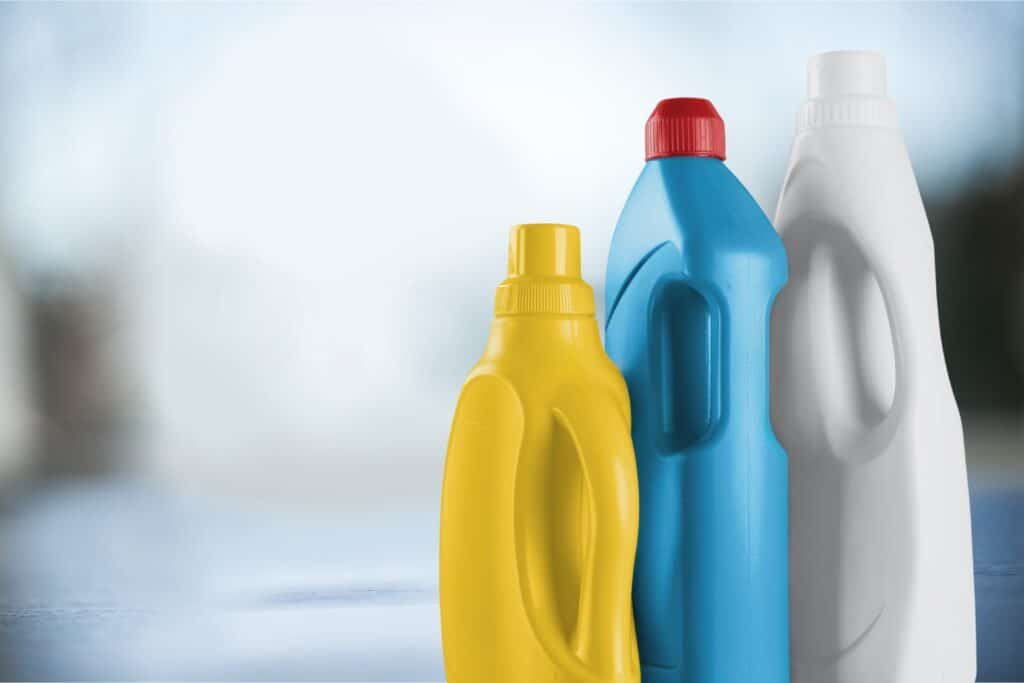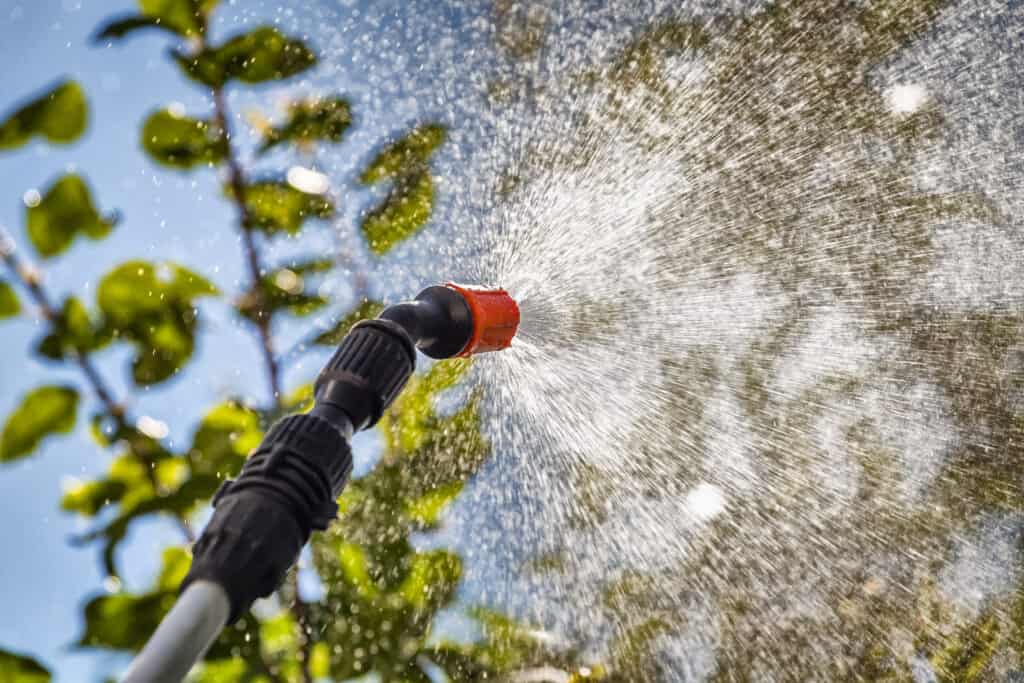The Pennsylvania Constitution (Article 1, Section 27) states that “people have a right to clean air, pure water, and to the preservation of the natural, scenic, historic and aesthetic values of the environment.” To preserve the integrity of our Pennsylvania state Constitution and ensure all peoples’ right to a healthy environment, Women for a Healthy Environment produces policy briefs, toolkits, and fact sheets to empower the public to advocate for policy change regarding environmental health. As the discipline of environmental health evolves, WHE continues to conduct research with its coalitions to produce the most up-to-date informational materials and corresponding local, state and federal policy recommendations.

Current Initiatives
As new scientific evidence emerges, we continually adapt our policy focus to address the most urgent threats to environmental health. Right now, we are championing several key initiatives aimed at improving air quality, water safety, and reducing exposure to harmful toxins.
- Lead Exposure | Get the Lead Out!
- Radon in Schools
- PFAS
- Glyphosate
- Air Quality
- Water Quality
Join us in shaping policies that make our communities safer and healthier for generations to come.

Lead Exposure | Get the Lead Out
There is no safe amount of lead exposure. Even small amounts can cause irreversible damage, affecting brain development, learning, and behavior in children, while also increasing risks of serious health problems for adults, such as heart disease, kidney disease, and infertility. Lead poisoning is a preventable tragedy, but it continues to impact families in our communities.
At Women for a Healthy Environment (WHE), we are leading the charge in the fight against lead poisoning. Our efforts focus on reducing exposure in the places where children and families spend the most time—homes, schools, and early learning centers. We provide comprehensive education, resources, and assessments to help communities identify and eliminate lead hazards before they cause harm.
Through collaboration with Lead Safe Allegheny, WHE is at the forefront of creating lead-safe environments for children and families across our region. From helping schools remove lead in water and paint, to guiding early learning centers in creating toxin-free spaces, we are committed to protecting the most vulnerable. Our leadership in lead poisoning prevention is driven by a simple truth: every child deserves a safe, healthy place to learn and grow.

Radon in Schools
In 2019, WHE established the Radon in Schools Workgroup to push for legislative action protecting children from radon exposure in schools and childcare centers. By the fall of 2024, the workgroup successfully advanced its efforts with the introduction of SB 1328 in the PA Senate, sponsored by Senator Devlin Robinson.
About the workgroup
The group’s members focus on raising awareness and advocating for mandatory radon testing and remediation in Pennsylvania schools. The group works alongside legislators, public health experts, and community members to address the dangers of radon exposure in educational settings and develop policies to protect students and staff from its harmful effects.
Member partners include American Lung Association, Women for a Healthy Environment, PA Indoor Environments Association, Citizens for Radioactive Radon Reduction, Premier Youth Ambassadors for Radon Reduction, Fox Chase Cancer Center, Helping Solutions, LLC, RadOn-RadOff, and PA Radon Health Equity Workgroup.

PFAS
Per- and polyfluoroalkyl substances (PFAS) are a chemical class of thousands of human-made chemicals that are used in consumer products and many industries. What makes these substances unique are their extremely strong chemical bonds, which allow them to persist in the environment indefinitely – this is why they are known as “forever chemicals”. PFAS chemicals known to be widely used in consumer products include PFOS, PFOA, PFTE, GenX, and more.
FEDERAL PFAS LAWS
Regulation of PFAS at the federal level, as with most chemicals, is relatively limited, with most responsibility relegated to the states. The EPA still has not established PFAS as a hazardous substance under the many laws that grant it regulatory authority – Resource Conservation and Recovery Act (RCRA), Comprehensive Environmental Response, Compensation and Liability Act (CERCLA), Clean Air Act, or Emergency Planning and Community Right-to-Know Act (EPCRA).
STATE PFAS LAWS
The Pennsylvania Department of Environmental Protection (DEP) set MCLs for drinking water for PFOA (14 ppt) and PFOS (18 ppt) in January 2023, but these are much higher than those proposed by the EPA (4.0 ppt for both compounds). If the EPA’s proposed limits are approved, they will supersede the DEP’s MCLs. Still, DEP can set more stringent MCLs if they elect to do so based on the best available science.
LOCAL PFAS LAWS
Currently, there are no local laws or regulations in Allegheny County. Since PFAS are such a widespread issue, they are generally regulated at the state and federal levels.

Glyphosate
Many of the pesticides sprayed in our parks and public spaces contain cancer-causing chemicals like glyphosate. The use of these chemicals puts children, outdoor workers, pets, and anyone who enjoys spending time outdoors at risk of developing chronic health problems. But pesticides are not the only way we can control weeds, insects, and rodents. Over 200 other cities across the United States have already adopted safe pest management plans without exposing residents to synthetic pesticides. We are advocating for the City of Pittsburgh to adopt an Integrated Pest Management plan that employs organic and regenerative land management principles to safely control these pests without harming the people who live and play in these spaces.

Air Quality
The right to breathe clean air is a human right. We are here to help you advocate for that right!
WHE, in collaboration with other organizations, advocates for clean air in our region. Specific attention is given to the Mon Valley where industry pollution has been the main source of poor air quality. Coke oven emissions are classified as Group A, a known human carcinogen according to the EPA.
Coal tar and coal tar pitch are byproducts of coke, a solid fuel made by heating coal in the absence of air, and are commonly found in pavement sealants. A federal ban on coal tar and coal tar pitch in any commercial product would be the most health protective and efficient policy solution. Alternatively, states and localities can ban the sale or use of cosmetics and industrial products containing coal tar and coal tar pitch – read on to learn more.

Water Quality
Our work in advancing clean water is centered in Allegheny County. In April of 2021, WHE produced the Something’s in the Water report.
WHE set out to answer several questions including, is the tap water healthy to drink? Where is information about levels of contaminants in drinking water found? How are ratepayer concerns brought to the attention of water systems? What measures do water systems have in place to protect consumers from exposures such as lead? How much do water systems in Allegheny County differ?
These are the questions WHE heard from residents in community workshops and among our many partners collaborating on environmental initiatives across the county.
We decided to tackle them by analyzing all 36 Allegheny County water systems’ operational and communication capacities, public accessibility and transparency of information, adherence to drinking water quality standards, and strategies to reduce lead in drinking water exposure. We spent two years analyzing publicly available data through surveys of water systems, public websites, and Right-to-Know requests. Our goal was to identify issues faced by ratepayers, water systems and public health officials alike.
Additional Policy Briefs
WHE’s Policy Briefs examine key environmental health issues and present opportunities for local, state, and federal policy change that would create healthier homes, schools, and early learning centers. Each brief provides an overview of the environmental exposure of focus, its impact on health, current regulations, and policy recommendations.
The Safe Cosmetics and Personal Care Products Act was introduced in the 2019/2020 federal session to help protect consumer, worker, and environmental health from toxic chemicals in our every day products. While Congress did not pass it, it serves as a model for future proposals in coming years in that it strove to phase out ingredients linked to severe health effects, require full ingredient disclosure, provide funding to the FDA to expand its testing capacity, provide adequate oversight and testing, and put in place protections for salon workers’ health. Thus, WHE recommends inter-level policy initiative coordination among local, state and federal actors to address the toxic substances present in our every day items – read on to learn more.
Household mold can threaten your health in a variety of ways, and some types have neurotoxic, reproductive, and carcinogenic properties. Municipal and state policymakers can address this issue through updating building codes and evaluation systems, and federal policymakers can create greater enforcement measures for such programs in states – read on to learn more.
PlanCon, an acroynm for Planning and Construction Workbook, was an $8.4 billion fund encouraging schools and other organizations to build new and tear down old environmentally hazardous structures that was placed on a moratorium in Pennsylvania. Since, we’ve seen schools in disrepair due to underinvestment from the state, and thus WHE recommends re-allocating and continuing to budget for ample public funding being devoted to such a program.
Roundtable Recordings
The EPA partnered with community organizations to host a series of virtual roundtable conversations about the proposed revisions to the Federal Lead and Copper Rule. WHE hosted a Pittsburgh Roundtable on June 3, 2021. These revisions will be the first in decades to these requirements that ensure our drinking water is lead-safe. While we celebrate the opportunity to strengthen the rule, the proposed changes fall short in many ways. The EPA is anticipated to release the final Revised Lead and Copper Rule on December 16, 2021.
Additional Policy Resources
- Lead-Safe Demolition Working Group Report (2019) The Institute of Politics hosted a working group on lead-safe demolitions, and produced this report that includes a model municipal ordinance.
- Lead Exposure Risks and Response in Pennsylvania (2019), a report by the Joint State Government Commission’s Advisory Committee and Task Force on Lead Exposure
- Allegheny County Lead Task Force Report (2017)
- Safer States Bill Tracker. Safer States library of proposed and enacted policies related to a number of environmental toxins.
- ELI Indoor Air Quality Policy Tools. Environmental Law Institute’s library of policy resources on indoor air quality.
- State Radon Laws. This database comparing state radon laws across the U.S. is compiled by the Policy Surveillance Program, a project of Law Atlantis by the Center for Public Health Law Research (CPHLR) at Temple University’s Beasley School of Law.
- 10 Policies to Prevent and Respond to Childhood Lead Exposure (2017), by the Health Impact Project, a collaboration of the Robert Wood Johnson Foundation and The Pew Charitable Trusts.
- State and Local Code Tool. This National Center for Healthy Housing policy resource allows polices related to a variety of healthy housing topics to be compared.
- PA PFAS Action Team Initial Report (2019)
